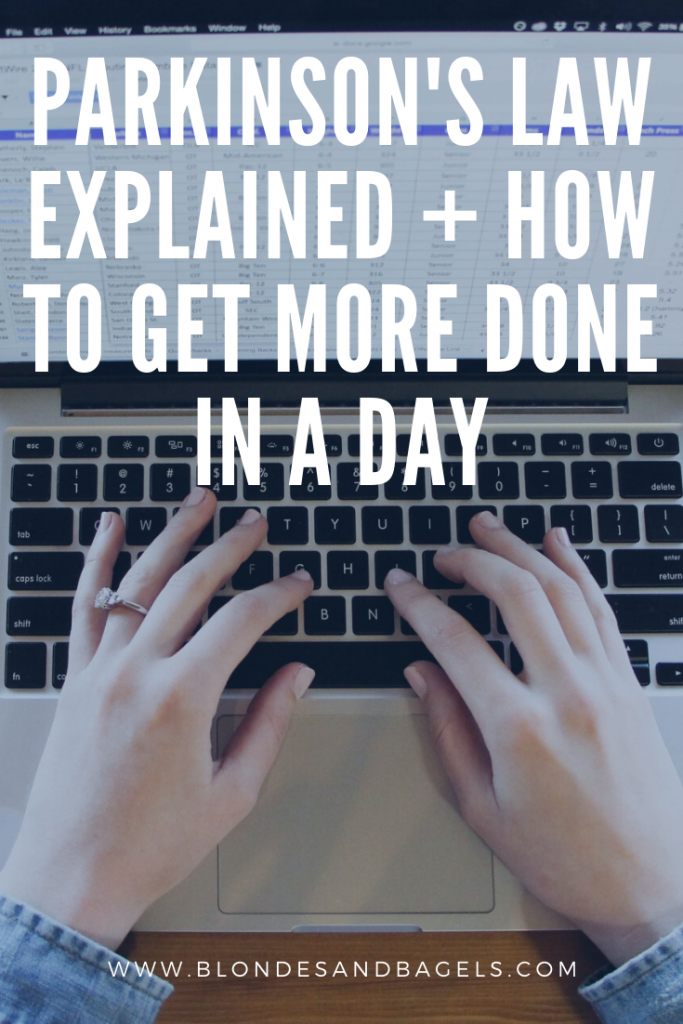Procrastination and wasting time – two of my most well practiced hobbies, honestly. I’m a champ.
But I don’t love that little fact about myself. I’ve been working to study the art of productivity and have learned loads along the way. One of the most interesting concepts I’ve discovered in my journey is Parkinson’s Law.
What exactly are we talking about here? Parkinson’s Law explained.
First published in the Economist in 1955, the article states, “It is a commonplace observation that work expands so as to fill the time available for its completion.”
There’s an entire backstory as to how “Parkinson’s Law” came to be – and what it was really about. Regardless of its origins and the author’s original target, the law absolutely holds true for many of us today.
I just can’t seem to get shit done efficiently. If I have two weeks to pen a sponsored blog post, I somehow manage to take that entire two week timespan to get the job done.
Ever had only one item on your to-do list for the day, but you somehow manage to fill the entire day with that one task? That’s Parkinson’s Law at work.
Why does this matter?
Parkinson’s Law only matters if a “lack” of productivity or a desire for improved efficiency with your tasks drives you crazy.
Like it does for me.
I’m a classic procrastinator and love filling up entire time slots doing single tasks – even when said task really should only take a small chunk of my day. It’s an issue.
But I’ve always been a big believer that awareness and recognition of a bad habit you’d like to change is the first step to changing it.
3 quick tips to beat Parkinson’s Law
Love your lists
Having a crystal clear to-do list on hand makes Parkinson’s Law way less likely to take hold. By understanding what’s on your list – and maybe even jotting down a time estimate for how long you think said task should take you – you’ll better be able to schedule time for each item.
Set your own deadlines
Regardless of the deadlines set for you by your employer, colleagues, professors, or clients – set your own “internal” deadlines and stick to them.
Your professor says an essay is due next week? Set an internal deadline for yourself sooner. Have a work task you need to deliver in two days? Will it really take you two days to get it done – or is it actually something you could accomplish in a few hours?
Evaluate your to-do list and come up with realistic, internal deadlines you can set for yourself to avoid sucking up a whole lot of time by “making” a task fit a longer timeline than it really needs.
Eat your frog
Okay, I’m stealing this “eat that frog” terminology from this book specifically (it’s a good one, check it out). But essentially the gist of this one is “there’s an old saying that if the first thing you do each morning is eat a live frog, you’ll have the satisfaction of knowing that it’s probably the worst thing you’ll do all day.“
Meaning get your “grossest” task on your daily to-do list done first, so everything else you have on your list for the rest of the day is easy breezy. The longer you procrastinate on eating your frog, the more painful it will be.
All in all, Parkinson’s Law is a challenge but it is possible to beat it with a little added structure.
Also just a friendly reminder – your value does not come from your productivity or ability to produce work. So if a task really does take you days, weeks, or months to hammer out – have at it. And give yourself some grace.
Pin this post!


